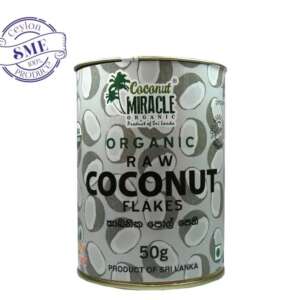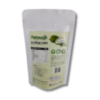Soursop (Annona muricata), also known as graviola, guanabana, or custard apple, is a tropical fruit with creamy white pulp and a sweet-tangy flavor. It is rich in vitamins, antioxidants, and natural compounds that offer a wide range of health benefits. Below are the key health benefits of soursop:
1. Rich in Antioxidants
Fights oxidative stress: Soursop contains antioxidants like vitamin C, phytochemicals, and acetogenins, which neutralize free radicals and reduce oxidative damage.
Prevents chronic diseases: Its antioxidant properties lower the risk of conditions like cancer, diabetes, and heart disease.
2. Anti-cancer Properties
Inhibits cancer cell growth: Studies suggest that acetogenins in soursop may selectively target cancer cells while leaving healthy cells unharmed.
Reduces tumor size: Research indicates potential anticancer effects against breast, liver, and prostate cancers, though more clinical studies are needed.
3. Boosts Immunity
Rich in Vitamin C: Soursop strengthens the immune system, helping the body fight infections and recover faster.
Fights bacteria and viruses: Its natural antimicrobial properties help protect against illnesses like colds and flu.
4. Supports Digestive Health
Improves digestion: High fiber content promotes healthy digestion and prevents constipation.
Relieves diarrhea: Soursop has astringent properties that can help manage diarrhea and soothe the digestive tract.
5. Reduces Inflammation
Eases arthritis pain: Soursop has anti-inflammatory properties that may reduce swelling and pain in joints.
Soothes skin inflammation: It can help alleviate skin conditions like eczema and rashes when applied topically.
6. Enhances Skin Health
Brightens complexion: The vitamin C in soursop helps reduce pigmentation and promotes radiant skin.
Fights aging: Its antioxidants combat free radicals that cause wrinkles and fine lines, keeping skin youthful.
7. Regulates Blood Sugar
Supports diabetes management: Soursop may help stabilize blood sugar levels, making it beneficial for individuals with diabetes.
Improves insulin sensitivity: Compounds in soursop may enhance the body’s ability to use insulin effectively.
8. Promotes Heart Health
Lowers blood pressure: Soursop is rich in potassium and magnesium, which help regulate blood pressure and improve cardiovascular health.
Reduces cholesterol: It may lower bad cholesterol (LDL) and increase good cholesterol (HDL), reducing the risk of heart disease.
9. Relieves Stress and Anxiety
Calms the mind: Soursop contains compounds that promote relaxation and reduce stress levels, making it beneficial for anxiety and insomnia.
Improves sleep: Consuming soursop tea or juice before bed may improve sleep quality.
10. Supports Weight Loss
Low in calories: Soursop is nutrient-dense but low in calories, making it an excellent choice for weight management.
Promotes satiety: Its fiber content helps you feel full longer, reducing the urge to overeat.
11. Antimicrobial Properties
Fights infections: Soursop has antibacterial and antifungal properties, which make it effective against common pathogens.
Prevents urinary tract infections: It may help combat UTIs by inhibiting the growth of bacteria.
12. Relieves Pain
Natural analgesic: Traditional medicine uses soursop leaves to alleviate pain from headaches, muscle soreness, and other ailments.
13. Supports Kidney and Liver Health
Promotes detoxification: Soursop aids in flushing toxins from the liver and kidneys, supporting overall organ function.
Prevents kidney stones: Its hydrating and diuretic properties help prevent stone formation.
How to Use Soursop
Raw Fruit: Scoop out the flesh and eat it fresh or add it to fruit salads.
Juice: Blend the pulp with water or coconut milk for a refreshing drink.
Tea: Brew dried or fresh soursop leaves to make a soothing herbal tea.
Smoothies: Add soursop pulp to smoothies for a creamy, nutrient-rich beverage.
Desserts: Use it in ice creams, sorbets, or puddings.




























Reviews
There are no reviews yet.